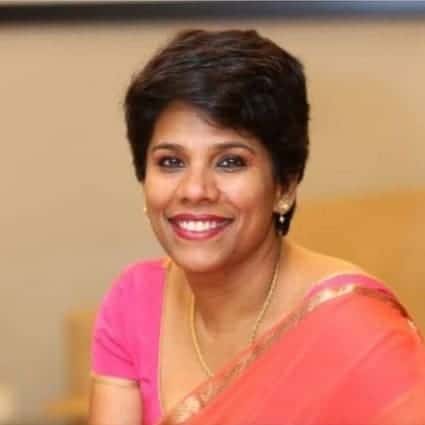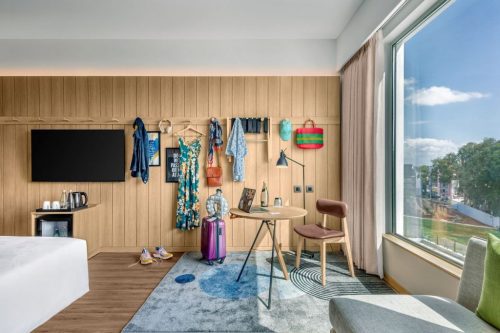In an exclusive interview with Kamal Gill, Exec Editor, Today’s Traveller, Ranju Alex, Area Vice President, South Asia, Marriott International, speaks on South Asia as a key market and the region’s rising travel and tourism industry.

TT Bureau: How do you plan to leverage Marriott International’s expansive portfolio considering its aggressive expansion in South Asia, in the context of the Group’s opening of its 150th Marriott property in the region?
Ranju Alex: South Asia is a key market for us and we are fairly bullish on India itself. It is due to our robust economic growth and demographic trends that have ensured rampant hospitality expansion. Moreover, the region’s rising travel and tourism industry is largely driven by both domestic and international travellers, underscoring the demand for quality accommodation and services.
In this year itself, we are looking to open 14 more hotels in South Asia, following the debut of our Moxy Brand in Bengaluru in January 2024. Talking about our overall signings last year and at the start of 2024, we have marked a record year of growth in South Asia signing 28 deals. This will add over 4,600 rooms to its development pipeline, reflecting our commitment to growth in the region.
As of now, we have a total of 148 hotels in India and 161 in South Asia. Katra Marriott Resort & Spa will mark our 150th hotel in the region.
We are also seeing growth in business travel and MICE activities, which further solidifies our importance with major cities hosting numerous corporate events and conferences.
TT Bureau: Could you share insights into the decision to introduce the Moxy brand to Bangalore’s market and how the Indian market is reacting to this new addition to Marriott’s portfolio?
Ranju Alex: Moxy is our 17th brand in the country and encapsulates an ethos, offering a sanctuary for the “always-on” guests who seek more than just a stay but an experience.
The brand attracts a younger, tech-savvy, and socially active demographic. It’s designed to appeal to the younger generations who prioritize experiences, value design and aesthetics, and seek social interactions during their travels.

The brand emphasizes communal spaces and encourages social interactions among guests. It’s made for those who enjoy meeting new people and engaging in a lively atmosphere. It is exciting to introduce brands that embody a new wave of hospitality and one that seamlessly combines affordability, style, and a dynamic social experience.
We have launched this brand with the opening of Moxy Bengaluru Airport Prestige Tech Cloud and will soon be introducing this brand to Mumbai.
TT Bureau: In an era where digital transformation is key, can you outline Marriott’s strategy on incorporating new technologies to improve guest experiences and operations?
Ranju Alex: Consumers as well as our own associates internally have largely leapfrogged in the use of digital technology. In this world, you can make reservations, check into a hotel, order room service, chat with the associates and check out, but need not have to physically meet an individual if you choose not to, and as a result of the pandemic, direct digital bookings have jumped dramatically. Our loyalty customers are well north of 50% of our business in most of our hotels.
We are focused on growing our engagement levels with guests by interacting with them through a variety of channels, including mobile apps, digital guest services, contactless check-in and check-out, chat, service requests, mobile keys, and more. We offer a range of services to our customers through the mobile app. Through these initiatives, the company aims to offer more convenience to customers using technologies.
TT Bureau: What do you see as the challenges and opportunities in the South Asian hospitality market for Marriott to maintain its competitive edge?
Ranju Alex: I see both challenges and opportunities in our market. One of the primary challenges we face is the intense competition in this region. With the growth of local and international hotel chains, as well as the rise of alternative accommodation options, maintaining our competitive edge requires continuous innovation and differentiation.
One challenge specific to the South Asian market is the diversity in consumer preferences and cultural nuances across different countries and regions. Understanding and catering to these differences while maintaining our global standards can be demanding but presents a significant opportunity for growth.
Furthermore, infrastructure development, regulatory hurdles, and economic fluctuations in certain countries within South Asia pose additional challenges.
However, despite these challenges, the market offers immense opportunities for us. The region’s rapidly growing middle class, increasing disposable income, and expanding business and leisure travel present a favourable environment for our brand expansion.
Additionally, there’s a growing trend of experiential travel and a demand for unique and authentic experiences, which aligns well with Marriott’s diverse portfolio of brands and offerings.

Leveraging our strong brand presence, loyal customer base, and innovative technology solutions, we can capitalize on these opportunities to enhance guest experiences and drive revenue growth.
TT Bureau: Can you share key takeaways from your own experience in the hospitality industry, for people starting out, on how to navigate and thrive in the evolving landscape of hospitality and travel?
Ranju Alex: Drawing from my experience, here are some key takeaways for individuals starting out, on how to navigate and thrive in the evolving landscape of hospitality and travel:
Embrace Continuous Learning: The hospitality industry is constantly evolving with new trends, technologies, and consumer preferences.
Develop Strong Communication Skills: Effective communication is crucial in the hospitality sector, whether it’s interacting with guests, colleagues, or stakeholders.
Adaptability is Key: The hospitality industry is resilient but also subject to rapid changes, be adaptable and open-minded, willing to embrace change, and quickly pivot strategies or operations as needed.
Foster a Collaborative Mindset: We are a team-oriented industry where collaboration and teamwork are essential. Recognize the contributions of others and be willing to collaborate across departments or teams to achieve common goals.
The hospitality industry can be demanding and unpredictable, requiring resilience in the face of challenges and setbacks. By embracing these principles and continuously striving for excellence, individuals starting out in the hospitality industry can navigate the evolving landscape with confidence and thrive in their careers.
Read more: Todays’ Traveller Interviews



